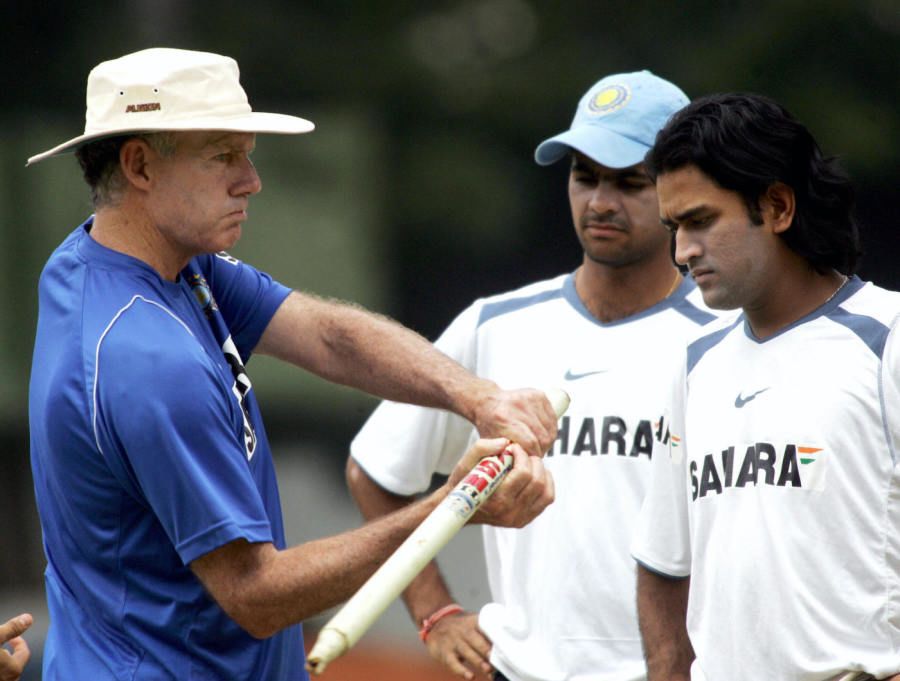
I believe that cricket coaches should have an oath not dissimilar to that laid down by Hippocrates in Of the Epidemics: "first do no harm".
At a time when the head coaching role with Australian cricket is in the spotlight, it is worth looking at the role of coaching in the game more broadly.
The developed cricket countries have lost the natural environments that were a big part of their development structure in bygone eras. In those environments, young cricketers learned from watching good players and then emulating them in pick-up matches with family and friends.
Usually any instruction that was received was rudimentary, and interference from adults generally was minimal. In these unstructured settings, players developed a natural style while learning to compete against older players, during which they learned critical coping and survival skills.
The Indian subcontinent still has many towns where coaching facilities are rare and youngsters play in streets and on vacant land without the interference of formal coaching. This is where many of their current stars have learned the game.
MS Dhoni, with whom I worked in India, is a good example of a batter who developed his talent and learned to play in this fashion. By competing against more experienced individuals on a variety of surfaces early in his development, Dhoni developed the decision-making and strategic skills that have set him apart from many of his peers. His is one of the sharpest cricket minds I have encountered.
England, on the other hand, have very few of these natural environments and their players are produced in a narrow band of public schools, with an emphasis on the coaching manual. This is why their batting has lost much of its flair and resilience.
The games that young people make up and play are dynamic and foster creativity, joy, flexibility in technical execution, tactical understanding and decision-making, which are often missing in batting at the highest levels.
Invariably, when an adult gets involved with kids playing cricket, they break up the game and kill its energy by emphasising correct technique. This reduces a dynamic, engaging environment that promotes learning to a flat and lifeless set of drills that do little to improve batting in games.
The growth in structured training in the preparation of batters has not only failed to take batting forward, it has actually resulted in a decline in batting. Highly structured environments, and an excessive focus on teaching players to perform "correct" technique, dehumanise cricket.
The environments that attempt to reduce batting to mastery of technique, and to break it up into a number of distinct components, reflect a misunderstanding of how complex batting is. Quality batting requires good imagination, creativity, and the ability to identify and respond to challenges in matches.
In response to this problem, we must change the education of coaches. From training them to be the font of all wisdom, we must instead enable them to become managers of creative learning environments in which young cricketers learn the game with minimal invasion and interference from adults.
In this approach the coaches' work involves setting up conditions for learning through engagement with the physical learning environment - which involves some degree of awareness and decision-making.
There are a couple of significant challenges to the status quo of coaching involved here. One is the shift from the idea of the coach as having all the knowledge that he hands down to the players as passive receivers, to one of the coach facilitating and guiding players in constructing their own knowledge as active learners.
I can hear those who believe batting is all about technique asking how these "free-range" cricketers will become technically adept, but I would remind them that for the first 100 years of Test cricket, that is how the very best were bred.
In his wonderful book The Art of Cricket published 64 years ago, Don Bradman wrote: "I would prefer to tell a young player what to do than how to do it." I would take this further by suggesting that good coaches should also help them learn when and why.
 The author with MS Dhoni in 2006, whom he describes as "one of the sharpest cricket minds I have encountered" Dibyangshu Sarkar / AFP/Getty Images
The author with MS Dhoni in 2006, whom he describes as "one of the sharpest cricket minds I have encountered" Dibyangshu Sarkar / AFP/Getty ImagesTraining must be focused on improving game play by locating learning in contexts that, to different degrees, replicate game conditions, so that improvements in practice sessions lead to improvements in matches.
This does not mean just playing cricket instead of practising. It means designing and managing modified games and activities aimed at particular outcomes that suit the skills, attitudes and motivations of the players and the preferred learning outcomes - whether for children learning to play or for batters at the highest levels.
The best coaches ask questions to get players thinking and working together to solve problems. The questions are aimed at drawing players out to come up with solutions to the problems presented to them.This does not neglect technique but, instead, develops it by having players learn and improve the execution of technique in the context of a match. This develops decision-making, flexibility of execution, awareness, and the ability to adapt to the range of challenges that batters face.
The greatest batters developed their talent over long periods of time by playing and learning in creative, informal learning environments from young ages without an excessive focus on perfecting someone else's idea of what an ideal technique should look like.
England would do well to look at their coaching methods and how the best batters develop their skills as part of any review that they initiate on the back of another resounding defeat in Australia. The England batting was bereft of class, short on imagination, and lacked resilience throughout this tour. If I was in charge of English cricket, I know what I would do first - but I won't be giving that information away for free!
If they don't do something drastic, they will be accused of behaving as in the aphorism that has often been misattributed to Albert Einstein: Insanity is doing the same thing over and over again and expecting different results.